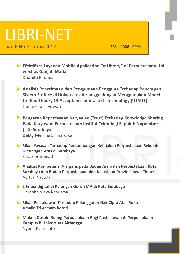Dental Journal (Majalah Kedokteran Gigi)
ISSN 1978-3728
Vol. 42 / No. 2 / Published : 2009-04
Related with : Scholar Yahoo! Bing
Original Article :
Biocompatibility of acrylic resin on bhk–21 cell line after being soaked in sodium hypochlorite
Author :
- Nike Hendrijatini*1
- Department of Prosthodontic
Faculty of Dentistry, Airlangga University
Surabaya - Indonesia
Abstract :
Background: Acrylic resin as basic material for denture will stay on oral mucosa for a very long time. The polymerization of acrylic resin can be performed by conventional method and microwave, both produced different residual monomer at different toxicity. Acrylic resin can absorb solution, porous and possibly absorb disinfectantt as well, that may have toxic reaction with the tissue. Sodium Hypochlorite as removable denture disinfectant can be expected to be biocompatible to human body. The problem is how biocompatible acrylic resin which has been processed by conventional method and microwave method after being soaked in sodium hypochlorite solution. Purpose: The aim of this study was to understand in vitro biocompatibility of acrylic resin which has polimerated by conventional method and microwave after being soaked in sodium hypochlorite using tissue culture. Methods: Four groups of acrylic resin plate were produced, the first group was acrylic resin plate with microwave polymeration and soaked in sodium hypochlorite, the second group was acrylic resin plate with microwave polymeration but not soaked, the thirdwas one with conventional method and soaked and the last group was one with conventional method but not soaked, and in 1 control group. Each group consists of 7 plates. Biocompatibility test was performed in-vitro on each material using fibroblast tissue culture (BHK-21 cell-line). Results: The percentage between living cells and dead cells from materials which was given acrylic plate was wounted. The data was analyzed statistically with T test. Conclusions: The average value of living cells is higher in acrylic resin poimerization using microwave method compared to conventional method, in both soaked and non soaked (by sodium hypochlorite) group. This means that sodium hypochlorite 0.5% was biocompatible to the mouth mucosa as removable denture disinfectant for 10 minutes soaking and washing afterwards.
Keyword :
biocompatibility, cell culture, disinfectant, acrylic resin, polimerization,
References :
Archive Article
| Cover Media | Content |
|---|---|
 Volume : 42 / No. : 2 / Pub. : 2009-06 |
|













